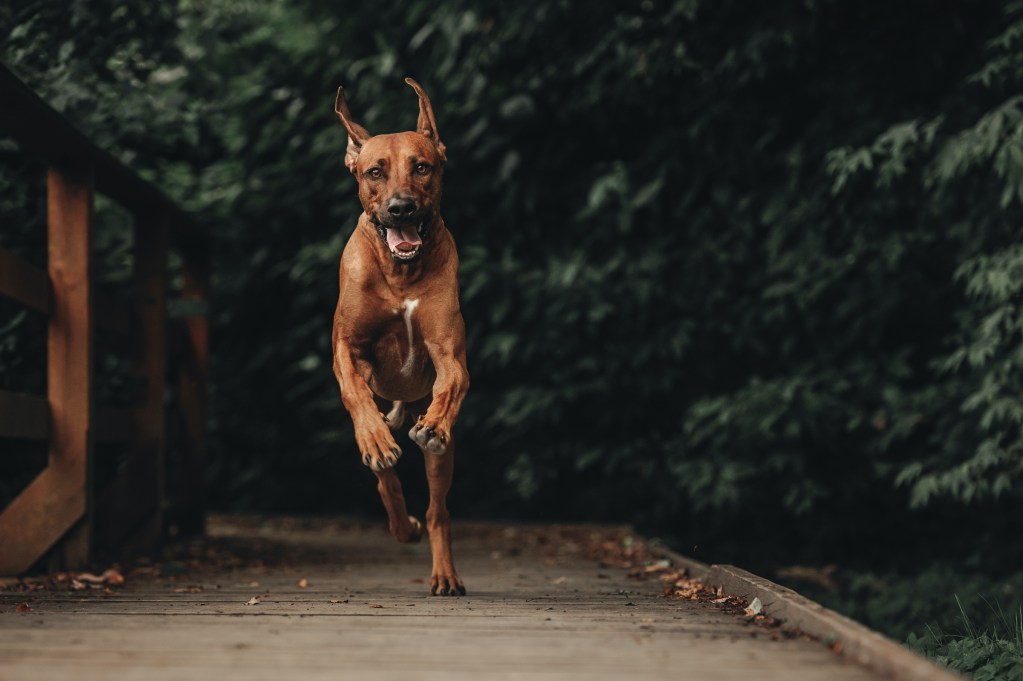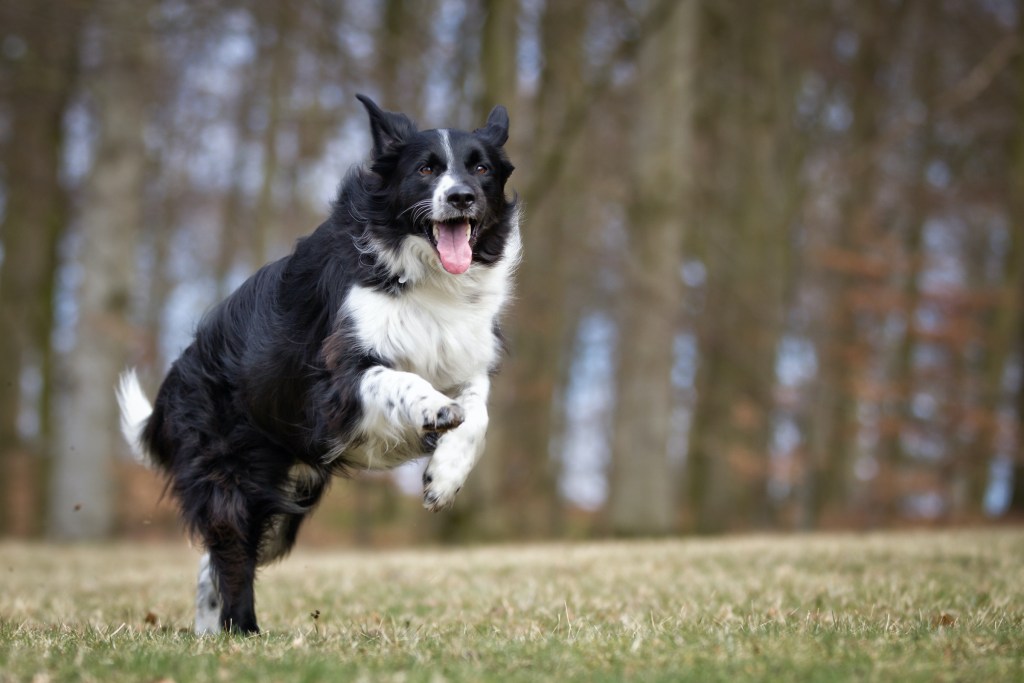Whether you’re a novice or experienced adventurer, hiking with dogs can be one of the greatest joys of life — or it can be a disaster. No matter how much you want your furry friend to be the ultimate hiking companion, not every pup is going to be up for the challenge. This is especially important to consider in the summer months, when some dogs can suffer from heat-related illnesses and exhaustion, but caution should be taken year-round. When in doubt, start with a small hike and see how your buddy does.
If you’re still searching for your next hiking partner, you’ll want to consider some of the breeds below. They’re active, adventurous, and ready for whatever might come their way. Still, every breed (and individual dog) has individual strengths and challenges, so you’ll want to do your research.
Keep reading to find out more about the best hiking dogs.
What dog breeds can do a seven-mile hike?
If you’re fond of long hikes, you’ll want to make sure your furry friend is too. Not all dogs are up for endurance exercise, even if they do love a shorter hike. Though each dog has unique preferences, these breeds are more likely to enjoy long hikes.
Siberian Husky
These dogs are famous for their history as endurance sledders, but that same tenacity can be used to propel them (and possibly you) on long hikes (via American Kennel Club). Their never-ending energy will make each new adventure a bit more exciting, though you’ll want to be careful not to let them overheat in warmer months. With this breed’s strength and easy-going personality, they may not mind wearing a hiking backpack to help ease your load.
German Shorthaired Pointer
These friendly, smart, and eager canines will probably be even more excited to get outdoors than you will be. GSPs are some of the easiest dogs to train, according to the AKC, though they could be distracted by other people, dogs, or small wildlife. They were bred as endurance-friendly hunting dogs, after all!
Jack Russell Terrier
Surprised to see a small breed on this list? You wouldn’t be if you saw the energy of this breed. This hunting breed has a very strong prey drive and instinct to work, though these dogs value companionship just as much. Still, this breed is best on-leash when out hiking, where Russells can safely enjoy the outdoors without running off.
Rhodesian Ridgeback
This hound was bred in Africa for the purpose of hunting over long distances. This makes the breed avid exercise enthusiasts — even today — though they’ll be happy relaxing at home after a hike, too. These dogs aren’t likely to bother anyone you pass on the trail, either, though you should never overlook training to reinforce good manners.

Which dog breeds can go off-leash?
Whether a dog enjoys hiking and whether your companion can be trusted off-leash are two separate things. Fortunately, these breeds are some of the best hiking dogs for spaces that allow off-leash walking.
Golden Retriever
These lovable family dogs are famously easygoing, so they can be wonderful off-leash companions with the right training. They’re eager to please and can be very motivated by affection or treats, too. However, you teach them to behave, make sure to stay consistent.
Australian Shepherd
These little smarties are equal parts athletic and friendly. Long hours of exercise won’t phase them, nor will anyone you meet while out and about (via AKC). They’re smart as a whip, too, so you won’t have many issues teaching them to hike off-leash.
Shetland Sheepdog
Shelties are smart, athletic, and super quick. That’s why training is a must before letting this breed off-leash. According to dog trainer Sam Basso, shelties have the potential to be one of the best off-leash companions thanks to their affinity for obedience once bonded with their owner.
Border Collie
This herding breed can be distracted and stressed by cars, bikes, and all the regular activities of walking in a neighborhood, so it can be freeing for them to explore in a more natural environment. These dogs are incredibly smart and eager for a job, so they can excel at recall while off-leash (via Sam Basso).

Are small dogs good for hiking?
Although large dogs are usually better able to keep up with long-distance hikes, smaller breeds can be equally as energetic and enthusiastic to get outdoors. The beagle, for example, will enjoy both the exercise and smells they encounter on hikes, notes dog trainer Alex Fritchley. Their smaller stature isn’t the best for rocky terrain, but they can walk for miles on easy ground.
Even tinier breeds, such as the miniature pinscher and the chihuahua, can make excellent hiking companions. While the Min Pin may have extremely high energy levels, notes Hill’s Pet, both this breed and the Chis will be perfectly happy chilling in your backpack for part of the hike too. Not every hiking companion has to actually do the hiking themselves!
Whatever breed you look into, or whoever your hiking buddy may be, please don’t forget to prepare for your adventure. Bring plenty of water and snacks for both you and your buddy, and pack some extra poop bags, too. If your dog responds best to treats, those are a must-have. Happy trails, pet parents!
Editors' Recommendations
- How long do dachshunds live? The truth might surprise you
- Why does my dog have a bald patch on their tail? Here are the answers you need
- Xylitol is dangerous for dogs: 10 surprising products that contain it as a hidden ingredient
- What you need to know about dogs with blue eyes
- Does your dog drink a lot of water? Here’s when you should be concerned




